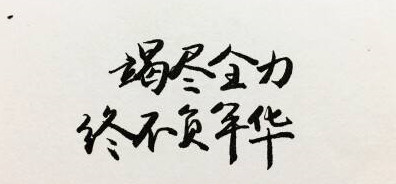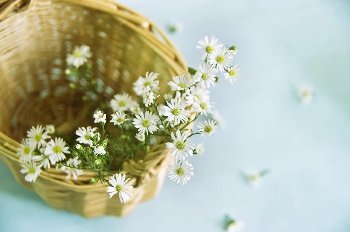 摘要:
初二上英语复习提纲二、选择填空:1.Look!LiPingandLiYing________basketballnow.A.playB.playedC.areplayingD.wi...
摘要:
初二上英语复习提纲二、选择填空:1.Look!LiPingandLiYing________basketballnow.A.playB.playedC.areplayingD.wi... 初二上英语复习提纲
二、选择填空:
1. Look! LiPing and Li Ying ________ basketball now.
A. play B. played C. are playing D. will play
2. What did you do last night?
I did my homework and _______TV.
A. watch B. watched C. am watching
3. Can I______ this book?
A. have B. has C. having
4. I to music at 7:00 every morning.
A. listen B. listening C. listening
5. What ______ that in the box? A shirt.
A. am B. is C. are D. be
6. Did your father his friend on the 5th of October?
A. called B. call C. is calling
7. Where you last night?
A. was B. are C. were
8. Can I TV? Sure.
A. watching B. watch C. see
9、She like summer.
A. doesn't B. don't C. isn't.
10. Here the money.
A. are B. is C. am D. was
11. There _______ a table and two chairs in Jenny’s room.
A. am B. is C. are D. were
附:参考答案
二、1-5 CBAAB 6-11 BCBABB
三、is swimming ,were,played,are
常用语用法
1.Hello 的用法:
Hello 的意思为“您好” ,一般可作为熟人,亲朋好友之间的打招呼用语,语气比较随便,例如:
Hello,Li Hua!你好,李华。
Hello,Tom!你好,汤姆!
Hello 也可以用以引起某人注意,常用在打电话时或者在路上碰见熟人时,相当于中文中的“喂”,有时也可用Hi 来代替hello ,但前者显得更随便。
2.What's your name?的用法:
当两人初次见面互相询问姓名时,可用What's your name来提问,回答时,可用My name is ….来回答,也可用I'm ….来回答接着反问对方时,可用And what's your name?来提问。例如:
Hi!What's your name?
Hi!My name is Lucy.And what's your name?
My name is Wang Ying.
你好,你叫什么名字?
你好,我叫露西。你叫什么名字?—— 我叫王英。
句中的What's是What is的缩写形式。
3.Good morning,class (teacher).的用法:
Good morning,class.同学们好。
Good morning,teacher.老师好。
这是上午上课时,老师和全班同学互相问候时用语。Good morning 是上午问候时的用语,多用于熟人,朋友或家人之间,是比较正式的问候用语。句中问候语放在前面,称呼语则要放在后面,并用逗号隔开。例如:
Good morning.Mr.White.怀特先生,你好。
4.英语字母:
英语中有26个字母,每一字母有大写形式和小写形式两种。大小写形式如下:
Aa Bb Cc Dd Ee Ff Gg Hh Ii
Jj Kk Ll Mm Nn Oo Pp Qq Rr
Ss Tt Uu Vv Ww Xx Yy Zz
1.Are you…?的用法。
这是一疑问句型,意思是“你是……吗?”用来询问姓名,职业,身份等,例如:
Are you a worker?你是一名工人吗?
Are you a student?你是学生吗?
回答时用Yes,I am.(是的,我是。)或者No,I'm not.(不,我不是)来回答,注意Yes和No后面都有逗号,不能省略。
2.Nice to meet you.的用法:
这是两位初次见面相识后的用语,意思是“见到你很高兴。”见面相识可由自我介绍,第三者介绍或者询问相识。例如:
Hello!I'm Xiao Hua.
Hello!I'm Xiao Li.
Nice to meet you,Xiao Li.
Nice to meet you,too,Xiao Hua.
你好:我是小华
你好:我是小李。
小李:见到你我很高兴。
小华:见到你我也很高兴。
3.Where is …?的用法:
这一句型表示“某物或某人在什么地方”。它同中文的句型结构不一样,where在前,而某物或某人在后,例如:
Where is my book?
我的书在哪儿?
It's there.
在这儿。
Where is Tom?
Tom在哪儿?
He is here.
他在这儿。
句中的where is可以缩写成“where's”。
4.am,is和are 的用法:
这三个词都是“是”的含义,但用法比中文中的“是”要复杂,英语中的am,is 和are都是be 的变化形式,根据不同的主语选用不同的动词,主语I 用am,表示复数的主语和单数“you”则要用are,其它则用is。
I am a teacher.我是教师。
You are a worker.你是一个工人。
You are students.你们是学生。
She is Miss Gao.她是高小姐。
This book is mine.这本书是我的。
【与熟人打招呼】:
英美人一天中见面都要打招呼,根据一天中不同的时间选用不同的说法,早上和上午时说Good morning,下午时说,Good afternoon,晚上见面时则要说Good evening。对方也用相同的问候语来回答。例如:
Good morning,Mr.Green.
Good morning,Miss Li.
【“Sorry” 的用法】:
Sorry 表示“对不起”或“抱歉”,用于对自己的过错,失误,不能做某事或者不能提供对方的请求时常用sorry或者I'm sorry来表示。例如:
Can you spell your name?你能拼一下你的名字吗?
I'm sorry.I can't.对不起,我不能。
What's the time,please?请问几点钟了?
Sorry,I don't know.对不起,我不知道。
【Excuse me 的用法】:
这是用于向某人询问一件事或提出请求而打扰某人时的用语。意思是“对不起”,“请问”。例如:
Excuse me!Where is my bag?对不起,我的包在哪儿呢?
Excuse me!Are you Teacher Wang?对不起,请问你是王老师吗?
【What's …的用法】:
这个句型用于询问某人叫什么或者某个东西是什么,例如:
What's this?It's a book.
这是什么?这是一本书。
What's your name?你叫什么名字?
My name is Lucy.我叫露西.
[编辑本段]名词
名词可分为专有名词与普通名词,可数名词与不可数名词,简单名词与复合名词。学习本章后要求学员掌握可数名词复数的变化形式,特别是名词的不规则复数形式的变化;掌握复合名词的复数形式;掌握名词所有格的构成及用法;注意区分可数名词与不可数名词。
名词是表示人,事物,地点或抽象概念的名称。
例如:
desk 桌子 time 时间 life 生活 book 书本 room 房间 city 城市 worker 工人 pencil 铅笔 computer 计算机
名词分为专有名词和普通名词
专有名词: 表示具体的人,事物,地点或机构的专有名称。
China 中国 Asia 亚洲 Beijing 北京
普通名词: 表示某些人,某类事物,某种物质或抽象概念的名称。例如:
teacher 老师 tea 茶 reform 改革
普通名词又可进一步分为四类
1) 个体名词(Individual Nouns):表示单个的人和事物。
horse 马 car 汽车 room 房间 apple 苹果 fan 风扇 picture 照片
2) 集体名词(Collective Nouns): 表示一群人或一些事物的名称。
people 人们 family 家庭 army 军队 government政府 group 集团
3) 物质名词(Material Nouns):表示物质或不具备确定形状和大小的个体的物质。
fire 火 steel 钢 air 空气 water 水 milk 牛奶
4)抽象名词(Abstract Nouns):表示动作,状态,品质或其他抽象概念。
labour 劳动 health 健康 life 生活 friendship友情 patience耐力
名词又可分为可数名词(Countable Nouns)和不可数名词(Uncountable Nouns)。
_______________________________________
专有名词
个体名词
可数名词
集体名词
普通名词
物质名词
不可数名词
抽象名词
可数名词有单,复数之分,表示一个或多个。
a  book 一本书 two books 两本书
book 一本书 two books 两本书
不可数名词:不分单,复数;抽象名词, 物质名词和专有名词一般是不可数名词。
sand 沙 sugar 糖
有少数名词即可作可数名词,也可作不可数名词,但含义不同。
glass 玻璃 glass 玻璃杯 paper 纸 paper 报纸,文件
名词的功能
名词在句中作主语, 宾语,介词宾语,宾语补助语,表语以及名词短语作状语。
The bag is in the desk. bag 作主语。
书包在桌子里边。
I washed my clothes yesterday. clothes 作宾语。
昨天我洗了我的衣服。
This is a good book. book 作表语。
这是一本好书。
We elected him our monitor. monitor作宾语补助语。
我们选他为我们的班长。
Mary lives with her parents. parents作介词宾语.
玛丽和她的父母亲住在一起。
He is a Party member. Party 作定语.
他是一名党员。
They study hard all the day.
他们白天黑夜地学习。
名词的数
英语可数名词有单数和复数两种形式, 表示一个人或事物用单数形式, 表示一个以上的人或事物用复数形式。
a book 一本书 two books 两本书 a bag 一个包 three bags 三个包
名词的单数形式就是词典上所出现的形式,没有变化, 如: a pen, a bed, a room, an English book。
名词的复数形式,多数名词的复数形式在其单数形式后面加 -s 或 -es 构成,名词复数形式变化如下。
1) 一般情况下,在词尾加 -s. 例如:
bags,maps,pens,desks,workers
2) 名词以 [s],[z],[x],[t],[d](也就是以sh,ch,s,x等结尾的)等音结尾在其后加 -es, 如词尾已有 e ,只加-s。
clothes, boxes, buses, horses, watches,dishes
3) 名词以 -f 或 -fe 结尾的,把 -f 或-fe 变成 -ves.
bookshelves, wives, knives
4) 名词以辅音+y 结尾的,变 y 为 i ,再加 es。
cities,babies, factories.
5) 名词以+ o 结尾的,有生命的,如potato,则加-es;无生命的,如photo,则直接加s。
极少数名词虽然以-o 或者-f 结尾, 变成复数则只加 -s,为数不多, 如 radios pianos photos roofs 等。
英语中有些名词的复数形式是不规则的,需要一一记忆常见的有,
man - men woman - women foot - feet tooth - teeth mouse - mice ox - oxen sheep - sheep deer - deer fish - fish
名词复数的不规则变化
1)child---children foot---feet tooth---teeth
mouse---mice man---men woman---women
注意:与 man 和 woman构成的合成词,其复数形式也是 -men 和-women。
如: an Englishman,two Englishmen. 但German不是合成词,故复数形式为Germans;Bowman是姓,其复数是the Bowmans。
2)单复同形 如:
deer,sheep,fish,Chinese,Japanese
li,jin,yuan,two li,three mu,four jin
但除人民币元、角、分外,美元、英镑、法郎等都有复数形式。如:
a dollar, two dollars; a pound, two pounds, a franc, two francs
3)集体名词,以单数形式出现,但实为复数。
如: people police cattle 等本身就是复数,不能说 a people,a police,a cattle,但可以说
a person,a policeman,a head of cattle,the English,the British,the French,the Chinese,the Japanese,the Swiss 等名词,表示国民总称时,作复数用。
如: The Chinese are industries and brave. 中国人民是勤劳勇敢的。
4)以s结尾,仍为单数的名词,如:
a. maths,politics,physics等学科名词,为不可数名词,是单数。
b. news 是不可数名词。
c. the United States,the United Nations 应视为单数。
The United Nations was organized in 1945. 联合国是1945年组建起来的。
d. 以复数形式出现的书名,剧名,报纸,杂志名,也可视为单数。
"The Arabian Nights" is a very interesting story-book.
<<一千零一夜>>是一本非常有趣的故事书。
5) 表示由两部分构成的东西,如:glasses (眼镜) trousers, clothes
若表达具体数目,要借助数量词 pair(对,双); suit(套); a pair of glasses; two pairs of trousers
6) 另外还有一些名词,其复数形式有时可表示特别意思,如:goods货物,waters水域,fishes(各种)鱼
定语名词的复数
名词作定语一般用单数,但也有以下例外。
1) 用复数作定语。
如:sports meeting 运动会
students reading-room 学生阅览室
talks table 谈判桌
the foreign languages department 外语系
2) man, woman, gentleman等作定语时,其单复数以所修饰的名词的单复数而定。
如:men workers women teachers
gentlemen officials
3) 有些原有s结尾的名词,作定语时,s保留。
如:goods train (货车)
arms produce 武器生产
customs papers 海关文件
clothes brush衣刷
4) 数词+名词作定语时,这个名词一般保留单数形式。
如:two-dozen eggs 两打/(二十四个鸡蛋)
a ten-mile walk 十里路
two-hundred trees 两百棵树
a five-year plan. 一个五年计划
个别的有用复数作定语的,如: a seven-years child
英语中有些名词总是以复数形式出现。
scissors 剪刀 goods 货物 trousers 裤子 clothes 衣服 glasses 玻璃杯
不可数名词量的表示
1)物质名词
a. 当物质名词转化为个体名词时。
比较: Cake is a kind of food. 蛋糕是一种食物。 (不可数)
These cakes are sweet. 这些蛋糕很好吃。 (可数)
b. 当物质名词表示该物质的种类时,名词可数。
This factory produces steel. (不可数)
We need various steels. (可数)
c. 当物质名词表示份数时,可数。
Our country is famous for tea.
我国因茶叶而闻名。
Two cups of tea, please.(可数,但是CUP可数,不是茶可数.)
请来两杯茶。
2) 抽象名词有时也可数。
four freedoms 四大自由
the four modernizations四个现代化
物质名词和抽象名词可以借助单位词表一定的数量。
如:
a glass of water 一杯水
a piece of advice 一条建议
不同国家的人的单复数
名称 总称(谓语用复数) 一个人 两个人
中国人 the Chinese a Chinese two Chinese
瑞士人 the Swiss a Swiss two Swiss
澳大利亚人the an two
Australians Australian Australians
俄国人 the Russians a Russian two Russians
意大利人 the Italians an Italian two Italians
希腊人 the Greek a Greek two Greeks
法国人 the French a Frenchman two
Frenchmen
日本人 the Japanese a Japanese two Japanese
美国人 the Americans an American two Americans
印度人 the Indians an Indian two Indians
加拿大人 the Canadians a Canadian two Canadians
德国人 the Germans a Germans two Germans
英国人 the English an Englishman two
Englishmen
瑞典人 the Swedish a Swede two Swedes
名词的格
在英语中,名词的格有三个,主格,宾格和所有格。它们的形式及其变化表示与其他词的关系。实际上, 主格和宾格通过它在句中的作用和位置来确定。
The bird is in the tree. 鸟在树上。 bird 作主语, 是主格。
I saw a film yesterday. 昨天我看了一场电影。 film 作宾语,是宾格。
名词的所有格:
名词中表示所有关系的形式叫做名词所有格。
Lu Xun's book is worth reading.
鲁迅的书值得一读。
This is my father's room.
这是我父亲的房间。
以-s 或 -es 结尾的复数名词的所有格只在名词后加 “ ' ”。
There are many students' exercise books here.
这儿有许多学生的练习本。
复合名词的所有格 " 's " 加在后面的名词之后.
This is my son-in-law's bike.
这是我女婿的自行车。
如果一样东西为两人共有,则只在后一个名词后加 " 's "。
We visited Xiao Li and Xiao Zhang's room.
我们参观了小李和小张的房间。
名词所有格所修饰的词,有时可以省略。如前文已经提到,或者指地点。
The book is not mine, but Li Hua's.
这本书不是我的,是李华的。
I had my hair cut in the barber's.
我在理发店理发了。
名词的双重所有格
物主代词不可与 a, an, this, that, these, those, some, any, several, no, each, every, such, another, which等词一起前置,修饰一个名词,而必须用双重所有格。
公式为:
a, an, this, that +名词+of +名词性物主代词。如:
a friend of mine.
each brother of his.
1.双重所有格是由非生物的所有格(即of+名词)与生物的所有格(如mother's, Tom's等)共同构成的。
2.双重所有格的形式可为名词+of+名词的所有格,其中of后面的生物的所有格之后的名词被省略;也可为名词+of+所有代名词。
Tom, Mike, and Mary were classmates of Stephen's.
汤姆,迈克和玛丽是史迪文的同学。
在生物的所有格Stephen's之后,省略了名词classmates, 生物的所有格所代表的同学的数量超过此文提到过的三人。
Mr. Green and Mr. Brown are neighbors of mine.
格林先生和布朗先生是我的邻居。
of之后的所有代名词=所有形容词my+名词neighbors,它所代表的邻居的数量超过此文提到过的两人。
3.双重所有格多由a, an, this, that, these, those, any, some, each, every, many, more, most, either, neither, no, much, another, several, enough, such, one, two等冠词、指示形容词、不定形容词、数量词或疑问形容词which+名词+of+名词的所有格或所有代名词构成。
He is a teacher of my sister's.
他是我妹妹的一位老师。
2) 表示无生命东西的名词所有格,一般与 of 构成短语表示前者属于后者。
It's a map of China.
它是一幅中国画。
I forgot the tittle of the film.
我忘记电影名字了。
Beijing is the capital of China.
北京是中国的首都。
名词的性
英语名词如果从生物学的自然性别角度来分析,可分为四种性,阳性,阴性,通性和中性。一般来说绝大多数名词没有性的词性变化形式。英语名词大部分都是中性的。对于一些代表性的英语名词,则用不同的英语名词来表示,而不是用一个词的词形变化来表示。例如
阳性: 表示男人或雄性动物的名词有,
father man boy
阴性: 表示女人或雌性动物的名词有,
mother woman girl
通性: 表示某一类别的名称,而不强调性别。
children baby friend animal fish
中性: 表示无生命的物质名称和抽象名称,
desk pen chair room
英语名称分类繁杂,它的单,复数问题,以及可数还是不可数问题直接影响谓语动词,冠词,代词的使用。请注意下列几个问题。
名称作主语时,谓语动词必须和它的主语人称,数相一致.
These books are mine, not yours.
这些书是我的,不是你的。
Miss Li teaches us English.
李小姐教我们英语。
注意事项
集体名称作主语时,谓语动词可用单数,也可用复数。用单数是把集体名称看作整体,用复数是把集体名称看作整体中的组成部分或各成员。
His family is large.
他家人很多。
His family are all teachers
他的家人都是教师。
动词用复数.
We Chinese people are brave and hardworking.
我们中国人民勤劳而勇敢。
下列名词 news mathematics physics polities 等名称作主语时,谓语动词用单数。
The good news is that we have passed the exam.
好消息是我们通过了考试。
下列名词 goods scissors trousers eyeglasses scales 作主语时,谓语动词用复数。
Do you know where my trousers are?
你知道我的裤子在哪儿吗?
用 and 连接的名词作主语,谓语动词用复数。
She and her sister are in the same school.
她和她的妹妹在同一个学校。
There be 句型中,谓语动词和靠近的主语一致。
There are two apples and one egg in it.
这里边有两个苹果和一个鸡蛋。
as well as 和名词连用时,谓语动词和第一个名词相一致。
He as well as I is responsible for it.
不但是我,他对这件事也有责任。
either...or, neither...nor, not only...but also 连接名词时,谓语动词和靠近的主语一致。
Either you or he has to hand in the report.
不是你就是他得把报告交上来。
[编辑本段]冠词
冠词置于名词之前,用来说明名词所指的人或事物,它不能离开名词而单独存在。英语冠词有:
1. 定冠词:主要功用为特指,表示同类中的某一人或某一类人和物。
2. 不定冠词:主要功用为泛指,指某类人或物中的任何一个或某一个。
3. 零冠词:它是名词中的一种无形冠词,用在一般所谓的不定冠词的场合。有三类名词使用零冠词:复数可数名词,不可数名词(用单数形式)及专有名词。本章要求熟记与冠词有搭配关系的常用习语以及一些不用冠词的固定词组。重点学习定冠词+单数形式的名词;不定冠词用于物质名词、抽象名词、形容词最高级及序数词;不定冠词的位置;零冠词用于名词;零冠词用于 零冠词+带定语的名词结构。
[编辑本段]代词
代词是代替名词或起名词作用的短语、分句和句子的词。代词分为人称代词、物主代词、反身代词、相互代词、指示代词、疑问代词、关系代词、连接代词和不定代词等。本章要求学员掌握多种代词的形式和用法,特别是人称代词、物主代词、疑问代词、关系代词和不定代词。注意all ,every,each 的区别;any,some的区别;every-body,evreone,one的区别;no one,none的区别;both,two的区别;other,another的区别。
[编辑本段]数词
数词是表示数量的词,数词的两个类型是基数词和序数词,前者表示多少;后者表示第几。
[编辑本段]动词时态
动词的时态(一)
在英语中,不同时间发生的动作或情况要用不同的动词形式表示,这种形式叫做时态。本单元要求学员掌握一般现在时(重点是单数第三人称he,she,it用作主语时的动词词尾变化形式),现在进行时(be+V-ing),一般过去时(不规则动词的过去式是学习的难点),及现在完成时(have/has+过去分词)的构成和用法,特别是一般现在时与现在进行时之间的比较及一般过去时与现在完成时之间的比较。
动词的时态(二)
本单元继续讲授动词的时态,要求学员重点掌握一般将来时、将来进行时、将来完成时、过去进行时、现在完成进行时、过去完成进行时及过去完成时等七种常用时态的构成和用法。弄清一般将来时及将来完成时的区别;现在完成时与现在完成进行时的区别;过去完成时的用法及其与过去完成进行时的区别。
被动语态
当强调动作承受者,不必说出执行者或含糊不清的执行者时,多用被动式。须注意的是,许多地方与汉语不同。注意那些汉语中没有"被……"的意思,英语却用被动态。还要注意,英语的被动态往往由"by"引出,而有用介词"by"的短语往往又不是被动态,而是系表结构。还有些待殊现象,如…known to man(人类......所知),on foot步行(美国人有时用by foot),in carraige(乘四轮马车)等等。还有假主动,真被动的十几个常用词的用法,以及so heavy to carry而不用so heavy to be carried等习惯用法。有关这类情况,做到心中有数对全面掌握被动态,准确无误地解答习题非常关键,被动态必须涉及的是动词的各种时态变化的问题。英语的时态本来很复杂,怎样记住各自的被动形式呢? 首先要明确"将来进行无被动,现在完成进行
同"。这两种时态无被动形式。
另外,不及物动词带有同源宾语的动词,反身代词的动词和系动词都无被动形式。即便如此,还有不定式,动名词,分词,以及它们的复合结构)的被动态,再加上情态动词,助动词以及它们的疑问式和否定式从中掺杂,真是令人头痛,眼花缭乱。下面口诀就以动词do为例,即do did过去式done过去分词,以口诀形式总结各种时态的被动态,一定对你有所启示。
被动语态(一般现在时)
主动语态变被动语态时,主动语态句中的宾语变成被动语态句中的主语,主动语态句中的主语成为被动语态句中的动作的发出者。
被动语态的口诀
一般现、过用be done,be有人称、时、数变。
完成时态have(has) done,被动将been加中间。
一般将来shall (will) do,被动变do为be done。
将来进行无被动,shall (will) be doing,
现在完成进行同,have (has) been doing。
现、过进行be doing, 被动be加being done。
情、助、有、是妥安排,一律随新主语变。
否定助后加not,疑问一助置主前。
主语恰是疑问词,直陈语序主在前。
一般情助加be done,双宾多将间宾变。
复合宾语宾变主,宾补、主补相应变。
第二句"be有人称、时、数变"即be有人称、时态和单、复数的变化。"情助"是指情态动词和助动词must,may,can,shall,will等一律随新主语(多是主动句中的宾语)来变化。"疑问一助置主前"是说有两个助动词的话,应把主语放在第一助动词之后或把第一助动词置于主语之前。下面详细举例说明之。
太长了给你个网站
初二下英语习题(要带答案的)
初二下英语月考试卷
Written part (100%)
一.词汇(15%)
A. 根据首字母,补充句子完整。
1.If you want to be thinner and h______, you should eat more fruit and vegetables.
2.We can’t live w_______ water or air.
3.Everybody l______ at her mistake yesterday morning.
4.There are many p______ in the doctor’s waiting room.
5.Take this m_______ three times a day.
B. 拼写单词,完成句子。
6.The train ________(到达)Paris at 8:00 a.m. last Sunday.
7. People enjoy Chinese food because it has different ______(味道).
8. The farmers are busy _______ (种) trees in March.
9.Excuse me, did you enjoy __________(玩得高兴)last night, children?
10.We shouldn’t _______(争吵)with each other.
C.根据单词的适当形式完成句子.
11.Which is _________,pizza, hamburgers or hot dogs? (popular)
12.If he _______ leave soon, he’ll be late for the last bus.(not)
13.The _______ of the two boys is my cousin. (fat)
14.She wants to see the doctor because her head ______(hurt).
15.Don’t be a queue ______(jump),young man.
二.选择题(15%)
1.The old man felt a little tired. He stopped ________ by the side of the road.
A. rest B. a rest C. resting D. to rest
2.Either my father or my mother ____ the meals on weekdays.
A. cook B. cooking C. cooks D. are cooking
3.It’ll take you an hour to walk there. It’s _____ way from here.
A. a quite long B. quite long a
C. quite a long D. quite far
4.You must be more careful. ____ car ______ hit you.
A. A; may B. That; must C. A ; must D. That; may
5.She ate nothing this morning. ___________.
A. Neither did I. B. So I did C. So did she D. Neither he did.
6.Miss Gao will tell you about it if she ______ you tomorrow.
A. see B. sees C. will see D. is going to see
7.Mike ____ be at home now. He _____ be at school. It’s school time now.
A. must; can’t B. can; mustn’t C. mustn’t; can D. can’t; must
8.Be ______.They are waiting ______ you at the school gate now.
A. quick ; for B. quickly ; for C. quick ;/ D. quickly; /
9.____ interesting work it is! I’m sure I can do it well.
A. How B. What C. What an D. How good and
10.She felt even _____ after Saturday and Sunday!
A. tired B. tireder C. more tired D. less tired
11.He seems quite ______, but he quite often _____ trouble in class.
A. quiet; does B. quiet; makes C. quietly; does D. quietly ;makes
12.It’s good ________,I think.
A. to keep busily B. to keep busy
C. keeping busily D. keeping busy
13.There is _____ boy on the train. I’d like to know who is a doctor on the train.
A. a sick B. an ill C. a happy D. a tired
14.What’s the ______ with her? She looks _______.
A. wrong, worried B. wrong, worry
C. matter, worried D .matter, worried
15.Excuse me for troubling you, Miss Gao. ________.
A. Thank you very much B. Yes, please
C. You are welcome D. That’s right
三.完型填空(10%)
Every morning, Peter goes to work by train. He always buys a newspaper on a train. It 1 him to make the time 2 3 .One Thursday morning ,he turned to the sports 4 .He wanted to read the 5 on an important football game. His local team won the night before. The report was so interesting that he forgot
6 at his station. He realized this 7 he looked out of the window. He got of the window. He got off at the next station and 8
wait a long time 9 a train going back.
He reached the office late. His boss was very angry and said , “Work is 10 important than football.
1. A. makes B. let’s C. helps D. has
2. A. goes B. pass C. past D. passed
3. A. quick B. more quick C. more quickly D. much quickly
4. A. page B. book C. newspaper D. books
5. A. reporter B. report C. news D. word
6. A. to get on B. getting on C. getting off D. to get off
7. A. until B. when C. before D. if
8. A. has to B. had to C. must D. have to
9. A. to B. with C. for D. of
10. A much B. most C. so D. more
四,阅读理解(30%)
A
Han is a visitor, he is in London for the first time. He is now in England for a week, and he sees many strange things.
Yesterday something strange happened to him. He wanted to go to the British Museum to look at some old books, so he went to the bus stop and waited for a bus. Soon the number 18 bus came, and he got on it. He asked the conductor to tell him the nearest way to the museum. The conductor told him to get off the bus at the third stop, and then walked down the street for five minutes.
“Go down New Oxford Street, turn left, and turn right and the British Museum is on the left,” he said.
Han got off the bus and started to walk. But after five minutes he knew he was lost. At school his English teacher always said, “If you lose your way in London, ask a policeman. They are very friendly.”
Suddenly, Han saw a policeman, in a very new uniform. He wanted to ask him a question but before he opened his mouth, the policeman said, “Excuse me, can you tell the way to the nearest police station? It’s my first day at work, and I’m lost!”
1.Han wanted to _______ that day.
A. see something strange in London.
B. look at some old books in a museum.
C. ask a policeman a question
D. visit a police station
2.The conductor here may mean ______ in Chinese.
A. 售票员 B. 向导 C.指导员 D. 导体
3.Han found he was lost _______.
A. when he was on the bus.
B. after he got off the bus and walked for five minutes
C. when he was saw a policeman
D. when he remembered his teacher
4. Han’s English teacher told him to ask for help from _____ when he was lost.
A. a teacher B. a conductor C. a visitor D. a policeman
5.Which of the following is NOT TRUE about the policeman?
A. He was on his way to workplace.
B. He wore very new uniform.
C. He knew the way to the police station.
D. He got lost as the writer.
B
In the sea there are many island. In its warm water there are some little ones. We call them Coral Island(珊瑚岛).
A coral island is very nice to look at. It looks like a ring of land with trees, grass, and flowers on it. One part of the ring is open to the water. There is a little round lake inside the island.
If you look at a piece of coral, you will see many little holes in it. In each of these holes a very small animals has lived. There sea animals make the coral. They began to build under the water. Year after year, the coral grew higher and higher. At last it grew out of water.
Then the sea brought it to small trees and something else. After some tears, these things changed into a earth. Sometimes birds flew over it and brought seeds to the island.
The little seeds grew. In a few years there were plants all over the island. In a few more years there were trees growing there.
So you see, these island were built by little. The workers were very small. Do they not teach us a lesson ? Can you think what the lesson is?
6.In the sea ________.
A. we can see many flowers
B. B. the water is always warm
C. there are some coral island
D. there are coral islands in all places
7. A coral island looks like ______.
A. a round cake B. a ring of land
C. a round lake…….D. trees and flowers
8.There are _____ in the holes of corals.
A. flowers B. little corals
C. grass D. sea animals
9.How did seeds of trees, grass and come to the coral island ?
A. Fishes brought them here.
B. People brought them here.
C. Ships brought them here.
D. The wind and birds brought them here.
10.From the story we learn that ________.
A. small workers can’t do big things.
B. only small workers can do big things
C. all small things can do big things
D. small workers can do big things if they work hard and work a long time
11.If you work at No.1,you have to work longer hours on _______.
A. Tuesday B. Thursday C. Saturday D. Sunday
12. Which two are open every day?
A. No. 1 and No. 2 B. No. 1 and No. 4
C. No. 3 and No. 4 D. No. 2 and No. 3
13.If four people work for the four different places, how many of them needn’t go to work on Sunday?
A. One B. Two C. Three D. Four
14.No.4 can probably be _________.
A. a government(政府) office B. a hospital
B. C. a restaurant D. a hotel
15.Bill’s Supermarket is open _______ a day.
A. 8 hours B. 10hours C. 12hours D. 16 hours
五. 选词填空(15%)
Manners are important in every country. 1 people have different 2 about their manners. What is good in one country may not be welcomed in ___3 .
Chinese people are 4 to know the fact that an Englishman 5 stop to talk and shake hands with his friend 6 the street. They just hello _7 each other and then pass on.
English people think that 8 Chinese end 9 to friends all of a sudden. They 10 begin to show that they want to go 15 11 20 minutes before they leave their 12 house. And they do this two or three 13 within 20 minutes.
It is important 14 people to understand each other. Here is a 15 , “ When in Rome, do as the Romans do.”
六.书面表达(15%)
给你朋友李明写封信,因为他经常生病,你在信中告诉他应该如何保持身体健康。你的建议是:1.多吃蔬菜,水果;2.多喝牛奶和水;3.多到室外活动;4.多参加体育锻炼;5.保持充足的睡眠;6.保持乐观的心情。
Dear Li Ming,
I am sorry to hear you are ill again. I think that if you want to keep healthy, you should …………
参考答案
一.词汇
A.healthier ,without ,laughed, patients, medicine
B.reached, tastes, planting, yourselves, quarrel
C.the most popular, doesn’t, fatter, hurts, jumper
二.选择
D C C A A;B D A B C;B B A C C
三.完型
C B C A B D B B C D
四.阅读
A. B A B D C
B. C B D D D
C. B D B A C
五.选词
But , ideas, another, surprised, doesn’t, in , to, we, visits, usually, or, friends’ , times, for, saying
六.书面表达(略)
初二英语试卷分析
、把每一题所考查到的知识点写在题目后面。
2、统计试卷上各知识点所丢的分数最多的是哪些,最少的是哪些,有多少是粗心大意所致,有多少是不会做。
3、结合课本,看本次考试的内容课本上有哪些知识点是这次考试没出现的,如果出现,会以什么样的题型出现,自己有多大的把握。
4、总结本次考试各类题型有哪些以前没见过的,解题的方法是否有没用过的。
最后,将做错的题目抄在自己的《错题集》上,把错误原原本本地抄下来,然后用红笔写出正确的答案,要过过程,同时,写上一些对错误的分析。
通过这次考试,我发现自己在这段时间学习的严重不足。单选题的错误在于平时听课效率不够高,笔记做得不完善,复习又不全面,像XX这样的知识点未弄明白,等等。所以在唯一可以把握书本知识的题目上出错,针对这点,以后一定要把握好课堂45分钟,不懂的地方及时问老师、同学。
完形和阅读因为平时的积累不够,未完全掌握答题要领和方法,所以出现未弄清题意、断章取义等现象,如XXXXXXXXXX(针对本次考试错误的地方举例),所以以后要多做完形、阅读,积累答题技巧,把课本的知识拓展、灵活运用,这样,才不会在下次考试中出现类似的问题
总之,平时的学习态度十分重要,毕竟态度决定成败,我相信通过下个阶段的努力,我一定能在下次考试中取得好的成绩!
初二英语试题及答案《人教版》?
一、单项填空(15分)
1. There are about five ______ students in our school.
A. hundred B. hundreds C. hundred of D. hundreds of
2. Saturday is the ______ day of the week.
A. first B. second C. last D. third
3. Get up early,______ you'll catch the early bus.
A. so B. and C. but D. or
4. Hurry up,______ you'll be late for class.
A. so B. and C. but D. or
5. The PRC was founded ______ October 1st,1949.
A. in B. on C. with D. for
6. They are all interested ______ English.
A. in B. on C. to D. at
7. My sister _____ a letter when I got home last night.
A. is writing B. was writing
C. wrote D. is reading
8. He asked me if I ______ the play.
A. saw B. had seen C. have seen D. see
9. _____ is raining now. You'd better stay at home.
A. It B. Weather C. This D. That
10. He will write to you as soon as he ______ there.
A. will get B. to gets C. gets D. getting
11. The bus stop ______ in 1999.
A. was built B. will be built
C. built D. will build
12. The work must ______ in time.
A. be done B. did C. is doing D. do
13. The policeman told us ______ in the street.
A. don't play B. not to play
C. to not play D. to play
14. Tom told me that he _____ to England the next week.
A. would go B. will go C. is going D. goes
15. The Blacks ______ in this factory since 1996.
A. has worked B. has come
C. have been D. have arrived
二、情景交际(10分)
1. “Are you hungry now? ” “______. ”
A. All right B. No, a lot
C. Yes, a little D. I’m hungry, too
2. “______? ” “They’re going to get there by bus. ”
A. When are they going to get there
B. How are they going to get there
C. What are they going to do
D. Where are they going to get
3. “Would you like to have another cup of tea?”
“Yes, ______. ”
A. I would like to B. I would like
C. I would love D. I would want
4. “When shall we meet?”
“______ a quarter past two? ”
A. What about B. Which about
C. Who about D. Where about
5. —Excuse me, where’s the post office, please?
—Sorry, I don’t know.
—______.
A. Bye-bye B. That’s all the same
C. Thank you all the same D. Thank goodness
6. —Which sweater do you like better?
—______.
A. Good idea B. I can’t decide
C. Yes, it’s nice D. Yes, please
7. —How do you like the new film?
—______.
A. Very kind B. Very delicious
C. Very lucky D. Very interesting
8. —Could you come, please? I want some help.
—______.
A. Yes, I could B. You’re welcome
C. Sure. I’m coming now D. That’s right
9. —Don’t pick flowers in the school garden next time, Lili.
—______
A. I have no idea B. Sorry, I won’t.
C. Is that so? D. Don’t worry.
10. —Sorry, mummy. I can’t tie my shoe.
—Don’t worry, dear. ______.
A. I want to help you B. I’ll help you
C. I’d like to help you D. I wish to help you
三、排序(5') 以下两种题型,供选择:
(一)
1. Sorry, I have to do my homework first.
2. Yes, I must . But I may come later.
3. Oh! Do you have to do it now?
4. Hi, Mingming. Can you come and play games?
5. OK.
A. 4-5-1-3-2 B. 4-1-2-3-5
C. 4-1-3-2-5 D. 4-2-3-5-1
(二)
—Oh, hi there! Li Ping! ___1___ What a pleasant surprise to meet you here.
—Hi, it's you. First of all I must congratulate you. ___2___
—Oh yes, thank you. I was lucky. ___3___
—He is very well. He asked me to say hello to you when I meet you.
—___4___ I'm missing him very much. I'll call on him some day. Would you say "Hi" to him for me when you see him and tell him that I'm going to see him?
—___5___.
—Thanks.
A. Thanks for passing on his greeting.
B. OK, I will.
C. It's nice of you to say so.
D. Haven't seen you for ages.
E. Wang Lin told me that you got a very good job.
F. You are welcome.
G. How is Wang Lin now?
四、完形填空(15分)
Nearly everybody enjoys chicken, and the most famous name in chicken is Kentucky Fried Chicken. Mr Sanders, the man who started this ___1___ was not always very rich. At one time, he ___2___ a small gas station next to a highway (公路). Many truck drivers ___3___ there to get gas and take a rest. Mr Sanders realized they were often ___4___, so he began serving sandwiches and coffee. ___5___ the sandwiches he made tasted good, and didn’t ___6___ too much, more and more ___7___ came to eat at his place. ___8___ Mr Sanders began to serve fried chicken. People ___9___ it very much, and his new business grew rapidly. Not long after, however, another highway was ___10___, and many drivers no longer went ___11___ Mr Sanders’ restaurant. So he had to ___12___ it. Then he traveled around the country ___13___ to sell his idea of opening fried chicken restaurants. He ___14___. By 1967, there were almost 5000 Kentucky Fried Chicken restaurants. And now, ___15___ you go in the United States, you will see one. If you like chicken, I’m sure, you’ll enjoy eating Kentucky Fried Chicken.
1. A. business B. shop C. life D. search .
2. A. found B. worked C. saw D. owned
3. A. passed B. got to C. stopped D. left
4. A. late B. hungry C. tired D. sick
5. A. Although B. If C. As D. Once
6. A. need B. pay C. spend D. cost
7. A. passengers B. drivers C. students D. doctors
8. A. Then B. So C. But D. For
9. A. ate B. liked C. tried D. drank
10. A. appeared B. found C. built D. broken
11. A. out B. to C. over D. on
12. A. close B. run C. return D. take
13. A. trying B. believing C. thinking D. suggesting
14. A. failed B. fails C. succeeds D. succeeded
15. A. whenever B. wherever C. where D. when
初二英语试卷分析
根据自己的错点进行分析1.听力,如果错的多的话,就要平时多练习听力。2.单选题,主要是知识点掌握不牢,需要多做题目。3.完形填空,考综合能力,对词性词义的分析能力,错误原因有很多可写:很多生词不懂,事情没有看懂等。4.阅读理解,主观题错可以说是大意了,没看懂等。细节题错了的话就说自己方法没掌握好,没有多看几次,仔细看重点内容。5.作文,可以说没时间了或语法没掌握好等。。。。。。。。。总之要多扯就好,最后再写以后该怎么做等。希望对你有用哈。。。。。。









